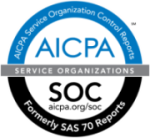

It seems like working from home has never been easier. The pandemic quickly made services like Zoom a household name, and Software-as-a-Service platforms have helped businesses support work-from-home arrangements. From national corporations to local businesses, employers are increasingly advertising remote positions—and job-seekers are interested.
The Federal Trade Commission this week identified an unsurprising consequence of this increased demand for work-from-home jobs: Criminals are perpetrating a series of phishing scams targeting Americans who are interested in moving out of a cubicle and into a home office. Hopefully, the agency’s information can help your clients avoid falling victim to this latest identity-theft grift.
What is the work-from-home scam?
Criminals are impersonating companies to offer bogus work-from-home employment opportunities for a number of fields, including data processing. Just like most phishing scams, these cold-contact messages appear to come out of the blue, and scammers bank on recipients being excited (or desperate) enough to take the bait.
“After interested applicants finish long interviews, the interviewer says to give their Social Security number and other personal info,” the FTC explains. “Then, the ‘company’ sends them a check to ‘buy equipment.’ But that check is for more than the amount needed, so they tell you to send the leftover money back to the company—or to someone else.”
How can people avoid work-from-home scams?
The FTC provides a list of three things people can do to avoid falling victim to work-from-home scams:
- Do a search online. Look up the company’s name, email address, and phone number, plus the words “scam,” “review,” or complaint.”
- Start with sources you’re sure are legit. Try visiting sites like your state’s Career OneStop.
- Never bank on a “cleared” check. No legit employer will send you a check, tell you to buy stuff with it, and then ask you to send money to cover the balance. The check will bounce, and you’ll have lost the money you sent them.
For more information about employment-related scams, visit the FTC’s “Job Scams” webpage.
Source: “Want to work from home? Spot the scams first,” FTC.gov







